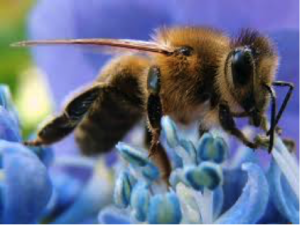
Colony Collapse Disorder (CCD) has been a serious problem for nearly a decade now (first recognized in October 2006). Unfortunately, no specific cause has been identified. Similar incidents have occurred in the 1880s, 1920, and 1960s, but none of these events has provided a clear understanding as to why honey bee colonies suddenly collapse.
What is clear about CCD disorder is that it threatens agriculture the world over. Beekeepers in the U.S. have reported losses in the range of 30-90% per year, losses that have prompted legislators in several states to consider laws that can help honeybees. Maryland is the latest state to consider a “pollinator health bill” and while these laws cannot prevent CCD, they can help to protect honeybees against known threats and give them a fighting chance.
What Maryland’s Pollinator Health Bill Addresses
Legislation about CCD falls into one of five broad categories: awareness, beekeeping, habitat protection, research, and pesticides. The Maryland bill fit into the final category, pesticides, and specifically aimed to restrict the use of neonicotinoid pesticides. Neonicotinoids include common pesticides like imidacloprid, thiacloprid, and acetamiprid.
The restriction of neonicotinoids is not a novel measure when taking a look at global efforts to fight CCD. In fact, all of the European Union (EU) and several non-EU countries began to limit or ban the use of neonicotinoids as of 2013. Ontario become the first North American government to restrict neonicotinoid use, finding that 80-90% of neonicotinoid (neonic) seed coatings were unnecessary and that prophylactic overuse of these pesticides violated fundamental principles of integrated pest management.
California, Indiana, Minnesota, Oregon, and Vermont have all passed legislation related to educating the public about neonicotinoids or researching their effects, but none of these states has gone so far as to ban the pesticide. Maryland’s 2015 Pollinator Protection Act would have been the first in the U.S. to restrict neonic use, but it failed to pass. The government of Maryland and the Delegate’s Environment and Transportation Committee do, however, intended to study the science surrounding neonics and their impact on bees, wildlife, aquatic life, and human health during the summer of 2016.
The Future of Pollinators
There is a clear trend toward restricting pesticide use to protect pollinators in the U.S., regardless of how much effect such restrictions would have. Though the Maryland bill failed to pass, it was the most aggressive legislation brought before a U.S. government (federal, state, or local) to date. It is only a matter of time before other states, perhaps those less beholden to pesticide manufacturers, pass legislation that restricts or even bans the use of neonics. Maryland may even return to the issue itself after the legislature has a chance to review the scientific literature.
Resources
http://www.mdpestnet.org
http://www.ars.usda.gov
http://www.ncsl.org
http://www.ncsl.org
http://www.baltimoresun.com
